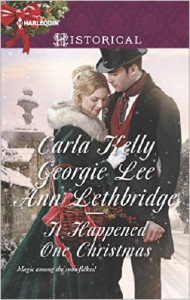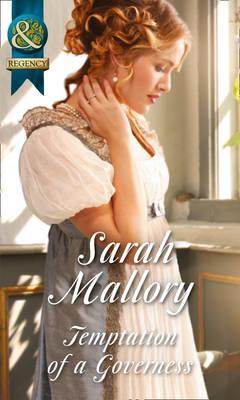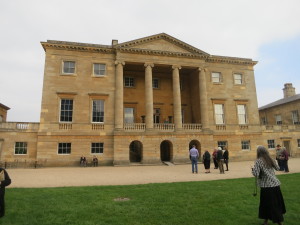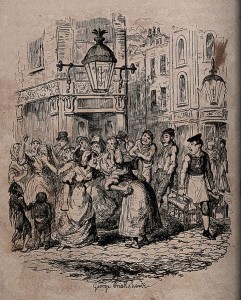 It Happened One Christmas is one of my favorite holiday things–a Regency Christmas Anthology! Even better, it features three novellas by my fellow Harlequin Historical authors–all award-winners: Carla Kelly, Georgie Lee, and Ann Lethbridge.
It Happened One Christmas is one of my favorite holiday things–a Regency Christmas Anthology! Even better, it features three novellas by my fellow Harlequin Historical authors–all award-winners: Carla Kelly, Georgie Lee, and Ann Lethbridge.
These ladies have generously offered to give away one copy of the anthology to one lucky commenter, chosen at random. Winner will be announced by Monday.
Praise for It Happened One Christmas:
“…three wonderful Regency authors showcase the joy of yuletide in novellas that shine with the magic of the season.” —RTBook Reviews
Tell us about It Happened One Christmas.

Carla Kelly
Georgie: In The Viscount’s Christmas Kiss, Lily and Gregor both learn to overcome their past missteps while dealing with crazy family members during Christmas.
Ann: Instead of a wicked stepmother in Wallflower, Widow…Wife, I thought it might be interesting to have a wicked stepson. Adam, our hero is grumpy, and not ready for the two little girls whom Cassandra has rescued from their charming but villainous stepbrother. Adam, drawn in by the spirit of Christmas he thought long forgotten, finds himself thoroughly embroiled and enchanted.

Georgie Lee
Carla: Christmas Eve Proposal is one of several Christmas novellas for Harlequin and my story takes place during the Napoleonic wars.
What was it like to write an anthology? Did you coordinate your stories or collaborate?
Ann: I love Christmas so I was pleased to be invited to participate in the Anthology. Each story stands alone, but it was lovely to be in a book two other others whom I enjoy reading.

Ann Lethbridge
Georgie: I wrote The Viscount’s Christmas Kiss during Christmas last year and through the beginning of the New Year. It was fun to celebrate Christmas with a story and to keep the holiday spirit going through January.
Carla: I have always enjoyed the added challenge of writing short stories. I also have a Christmas anthology with just my three stories In it, called “Regency Christmas Gifts”. We did not connect our stories in any way.
Did you come across any interesting research in writing your stories?
Carla: I developed a much deeper appreciation for the Royal Navy’s warrant officers, those men who were specialists in their fields. My character Benneit Muir was one of those. The sailing master on a Royal Navy frigate was the senior warrant officer who literally ran the ship, from location of ballast in the hold, to the set of the sails. His job was to be master at speed and maneuverability. A good sailing master could make or break a ship. My father was a warrant officer in the US Navy, and his specialty was aviation electronics, or avionics.
Georgie: I enjoyed researching how people in the Regency celebrated Christmas and then weaving some of their traditions, like Christmas dinner and a servant’s ball into my story. It was also fun to read about how excited students were to be on vacation and to go home for Christmas, just like today.
Ann: My heroine has fled from her home and must support herself and her stepdaughters, and what speaks of more Christmas than the warmth of candlelight? When Cassandra left home, she brought with her a swarm of honeybees and is making candles to sell at the market when the hero kisses her the first time. Researching the keeping of bees and the making of candles during this time was fascinating even if little of the actual research found its way into the story.
What was risky about your stories in It Happened One Christmas?
Georgie: Gregor takes a risk by apologizing to the woman he wronged while winning her heart. There is also a risky Christmas Eve kissing beneath the mistletoe scene where the hero and heroine almost get caught.
Carla: The Napoleonic Wars were still in full force in my story. It’s always risky to give your heart away under wartime circumstances, both for Ben and for Amanda. Even now, people do it, and I respect their courage.
Ann: No, not the bees! After a disastrous marriage, Cassandra takes a big risk in trusting Adam with her secrets. He could easily take the legal position of the day, laws established by men of course, and return her and the girls to their brother.
Tell us something about Christmas in the Regency and how it is shown in your stories.
Georgie: The Christmas carols Hark! the Herald Angels Sing and The Twelve Days of Christmas were both sung in the Regency era and I used them in my story. The Twelve Days of Christmas was really great for when I needed a long Christmas carol to keep the family distracted while the hero and heroine enjoyed a stolen moment together.
Ann: Being British, I realized that many of my family traditions go back to these times, for example making Christmas Pudding and decorating the house with holly and ivy. Though Christmas trees did not become standard in Britain until later in the century, they were traditional in European countries, so like Victoria adopting Prince Albert’s tradition, some other families must have done so as well. Also we know that Charles Dickens speaks of a decorated table top tree in his childhood home and he was born 1812, right at the beginning of the Regency, so I incorporated a German tree lit with real candles in my story.
Carla: The full-blown Christmases that we enjoy today were much less in evidence during the Regency. Ben and Mandy get together during a church service, which, along with a good meal on Christmas day, and perhaps a few presents constituted Christmas.
What is next for each of you?
Carla: Typically, I write two books a year, plus several novellas. Writing is an enviable (at times) job, from which one never need retire.
Georgie: My next book is A Too Convenient Marriage coming out February 1, 2016. It is book two in my Business of Marriage series.
Ann: My next book ties into an earlier book (More than a Mistress) is More Than a Lover and comes out in May 2016. You can find out about all my books at http://www.annlethbridge.com and if you sign up for my newsletter, you will receive a free short story e-book.
The three of us are delighted to offer one lucky winner a copy of It Happened One Christmas.
Please tell us about what you like about Christmas or the Holiday Season. Does your family have any unusual Christmas traditions or funny stories that Happened One Christmas?
Wishing you all the joys of the season and a happy and healthy New Year.
Carla, Georgie and Ann
Bios
Award winning author Georgie Lee was born and raised in San Diego where she also attended college, majoring in television and film production. She began her professional writing career at a local cable TV station writing marketing videos, promotional spots and public service announcements, some of which still haunt the airwaves.
Blinded by the dazzling lights of Hollywood, she headed north to Los Angeles where she earned her MA in Screenwriting, met her husband, and settled into a career in the interesting but strange world of the entertainment industry.
A lifelong history buff, Georgie hasn’t given up hope that she will one day inherit a title and a manor house. Until then, she fulfills her dreams of lords, ladies and a season in London through her stories. When not writing, she can be found reading non-fiction history or watching any movie with a costume and an accent.
http://www.georgie-lee.com
Award-winning author Carla Kelly is a veteran of the New York and international publishing world. Carla is best known for her Regency Romances, those novels of manner and wit, made popular more than two centuries ago by Jane Austen. Carla has made certain types of Regencies her own, particularly novels and stories about people who are not lords and ladies. Many of them are hard-working and hard-fighting members of the Royal Navy and Royal Marines in the Channel Fleet, and the British Army on the Spanish Peninsula.
Carla’s interested in the Regency Era is mainly fueled by her scholarly interest in the Napoleonic Wars on land and sea. She credits her own upbringing with some of this interest. As the daughter of an officer in the U.S. Navy, she crossed the 180th Meridian as a child, and has the certificates to prove that she is a member in good standing of The Domain of the Golden Dragon, since the age of 13 months.
Carla’s other major historical interest is the U.S. Indian Wars (1854-1890). She began her writing career writing short stories about the people who lived in army garrisons throughout the American West. She wrote these stories as a direct result of working as a ranger in the National Park Service at Fort Laramie National Historic Site. Currently, she has gone back another century to write a series about a brand inspector and his wife in the 18th New Mexico. Other novels set in the West are forthcoming, probably along with more Regencies. http://www.carlakelly.com
Ann Lethbridge is an award winning author who has over 30 stories in print and e-book published around the world. She is particularly proud of her 2009 win of the Daphne DuMaurier Award for Excellence in Mystery/Suspense for The Rake’s Inherited Courtesan her very first novel with Harlequin.
An army brat, born in England, Ann lived all over Britain in her youth and grew up with a deep appreciation of history. The turn of the millennium seemed like a great time to try something new and the stories in her head were looking for an outlet. Given her love of all things Georgette Heyer, regency romance seemed like a no brainer.
The stories are still calling, the ideas pushing their way forward at the most inopportune moments, and she is ejoying every minute of it. Ann loves to hear from readers and you will find her on facebook, twitter and her website. For all the links go to http://www.annlethbridge.com
 I have another guest today! Today it is my pleasure to turn my blog day over to Sarah Mallory, who is here to talk about her latest release, Temptation Of A Governess, out now from Harlequin Historical.
I have another guest today! Today it is my pleasure to turn my blog day over to Sarah Mallory, who is here to talk about her latest release, Temptation Of A Governess, out now from Harlequin Historical. Tell us about your book.
Tell us about your book.










